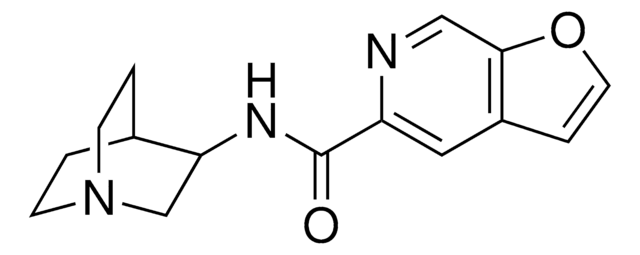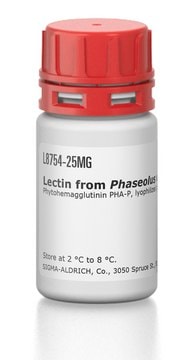PZ0266
PHA-408
≥98% (HPLC)
Synonym(s):
8-(5-Chloro-2-(4-methylpiperazin-1-yl)isonicotinamido)-1-(4-fluorophenyl)-4,5,dihydro-1H-benzo[g]indazole-3-carboxamide, PHA-00767408, PHA-767408
About This Item
Recommended Products
Quality Level
assay
≥98% (HPLC)
form
powder
color
white to beige
solubility
DMSO: 5 mg/mL, clear (warmed)
shipped in
dry ice
storage temp.
−20°C
SMILES string
Fc1ccc(cc1)[n]2nc(c3c2c4c(ccc(c4)NC(=O)c5c(cnc(c5)N6CCN(CC6)C)Cl)CC3)C(=O)N
InChI
1S/C29H27ClFN7O2/c1-36-10-12-37(13-11-36)25-15-23(24(30)16-33-25)29(40)34-19-6-2-17-3-9-21-26(28(32)39)35-38(27(21)22(17)14-19)20-7-4-18(31)5-8-20/h2,4-8,14-16H,3,9-13H2,1H3,(H2,32,39)(H,34,40)
InChI key
ZLEZHGHFWIHCGU-UHFFFAOYSA-N
Biochem/physiol Actions
signalword
Warning
hcodes
Hazard Classifications
Eye Irrit. 2 - Skin Irrit. 2 - STOT SE 3
target_organs
Respiratory system
Storage Class
11 - Combustible Solids
wgk_germany
WGK 3
flash_point_f
Not applicable
flash_point_c
Not applicable
Choose from one of the most recent versions:
Certificates of Analysis (COA)
Don't see the Right Version?
If you require a particular version, you can look up a specific certificate by the Lot or Batch number.
Already Own This Product?
Find documentation for the products that you have recently purchased in the Document Library.
Customers Also Viewed
Our team of scientists has experience in all areas of research including Life Science, Material Science, Chemical Synthesis, Chromatography, Analytical and many others.
Contact Technical Service


![Poly[(R)-3-hydroxybutyric acid] natural origin](/deepweb/assets/sigmaaldrich/product/structures/129/476/7d1c924b-f644-4889-a2d6-d7a923ce382c/640/7d1c924b-f644-4889-a2d6-d7a923ce382c.png)









